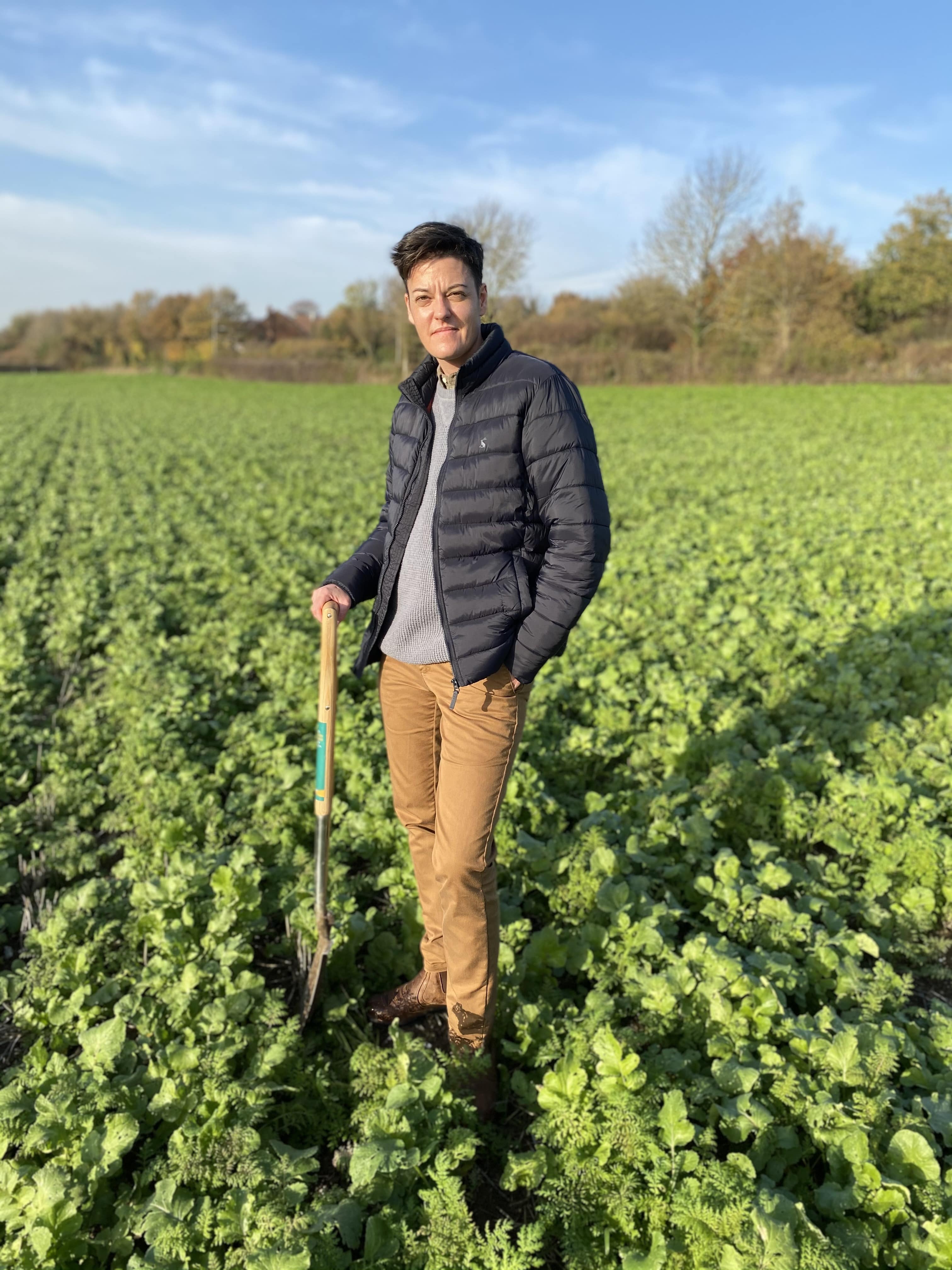Frontier Agriculture is supporting research into soil health by investing in seven ‘Soil Life’ trial and demonstration sites. The sites, across the UK, are part of Frontier’s 3D Thinking trials and research programme.
17th December2020
 Why is Frontier investing in this research?
Why is Frontier investing in this research?
Farmers are faced with a range of political, economic and social drivers to increase sustainable food production. For growers, soil health is at the very core of responding to these drivers. The importance of soil health has also been illustrated in the Agriculture Bill, which sets out how farmers will be rewarded with public money for ‘public goods’. Meanwhile, resilient soils are also likely to help growers withstand increasingly unpredictable and extreme weather patterns.
Frontier believes that investment in researching alternative soil management approaches and technologies is vital because it will help farmers to rise to these challenges. Jim Stotzka, Frontier’s lead on sustainability, explains that the investment in these sites will support farmers in the new era of focusing on what’s under the ground to benefit what grows on top: “The landscape is changing politically, with more emphasis on soil health and how it’s managed in the Agriculture Bill. Farmers will need to focus on their soils in order to adapt to the direction of legislation. Meanwhile, shoppers are increasingly interested in the provenance of their food. This is creating demand and, in some cases, premiums from food manufacturers for produce they can promote as sustainably sourced.
“We are therefore placing stronger emphasis on providing advice and solutions that help farmers to manage soils well and the techniques we can help farmers implement to benefit their productivity and sustainability targets.”
Frontier’s seven Soil Life sites
Ross-on-Wye - Herefordshire
- Soil type: Sandy/silty clay loam
- Focus: Investigating methods for successfully building organic matter levels and exploring how this benefits the wider health and functionality of the soil.
Haddington - East Lothian
- Soil type: Silty clay loam
- Focus: Improving soil health in a potato rotation through increased organic matter, while also supporting greater biological activity and nutrient availability to improve yields.
Consett - Durham
- Soil type: Silty clay loam. High altitude - soils remain cooler for longer and lose heat rapidly in autumn
- Focus: Investigating methods of building organic matter in a zero-till system to improve long-term soil sustainability and yield potential, including the use of cover crops, organic material and grass leys.
Nassington - Peterborough
- Soil type: Clay loam
- Focus: Carbon management. Investigating methods for monitoring and quantifying carbon storage within soils, as well as soil management techniques to increase soil carbon capture and reduce the farm's carbon footprint.
Beverley - East Yorkshire
- Soil type: Clay loam
- Focus: Exploring the use of zero-till and imported organic materials alongside cover, catch and companion crops to improve soil health. The impacts of a wider rotation with reduced winter crop frequency are also being assessed.
King's Lynn - Norfolk
- Soil type: Sandy loam over chalk
- Focus: Regenerative agriculture. Work is focused on investigations into the core principles of regenerative agriculture in order to provide a better understanding of effective management techniques backed by scientific data.
Longfield - Kent
- Soil type: Clay loam over chalk
- Focus: Employing a flexible system of crop establishment to improve soil health on a farm with varying soils.
“The sites are working farms, meaning data coming from them will provide practical and relevant advice for other growers because it has been gathered in a real farm situation, often at field-scale. The work at each trial is managed in partnership with the host farmer and their agronomist, with guidance and support from our technical team. Frontier’s technical team will also use data from the Soil Life sites to ground-truth the latest scientific studies around soil health,” adds Jim.
Data collation in a farming environment
Jim says the purpose of the Soil Life demonstration sites is to make use of the best existing technologies and test what is possible, as well as what is not, in a range of scenarios. Trials will look at the addition of a range of organic materials and methods, including cover crops, reduced tillage and wider rotations. “We’re at the forefront of utilising new technologies, such as near-infrared and DNA soil analyses, which may offer deeper insights into what the future of soil health management could be.
“The team at each site collaborates with our colleagues at Kings and SOYL, both divisions of Frontier, to draw on their expertise in stewardship, environmental management and precision farming. It’s important that data resulting from successful trials can be cascaded to other growers as a coordinated approach to crop production and soil management. Host farmers and the Soil Life team use mapping data within the MyFarm farm management platform to help monitor progress.
“Each farm is trialling an element which is linked to how we can support farmers to build crop production systems that are resilient to climate change and political developments. These are the farms that will be ready to take advantage of future commercial opportunities.”
Finding your soil’s baseline
Whilst the Soil Life team are researching the best approach to soil management at these seven research sites, all growers can use Frontier’s MyFarm platform, alongside advice from agronomists and the team at SOYL, to review three core areas of soil health:
- Nutrients and pH
- Organic matter levels
- Microbial activity.
Jim concludes: “Gathering this baseline information provides a benchmark on the farm’s soil health status and enables a plan to be implemented which can be reviewed regularly. Growers are then able to record what improvements are made and quantify which methods are working and which methods may not suit their system. This can be used to build upon the following season.
To find out more about Frontier’s investment in Soil Life, visit https://www.frontierag.co.uk/soil-life









